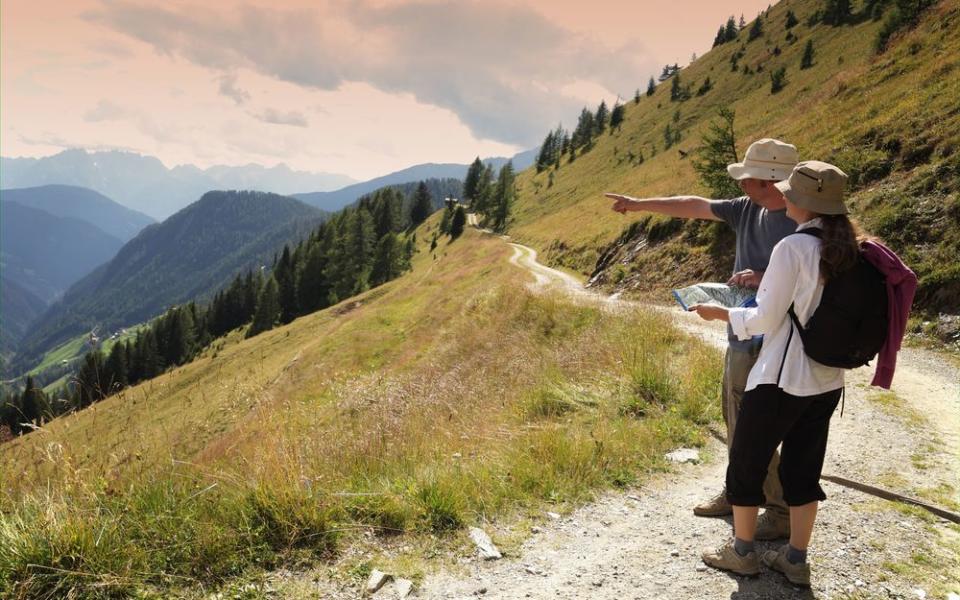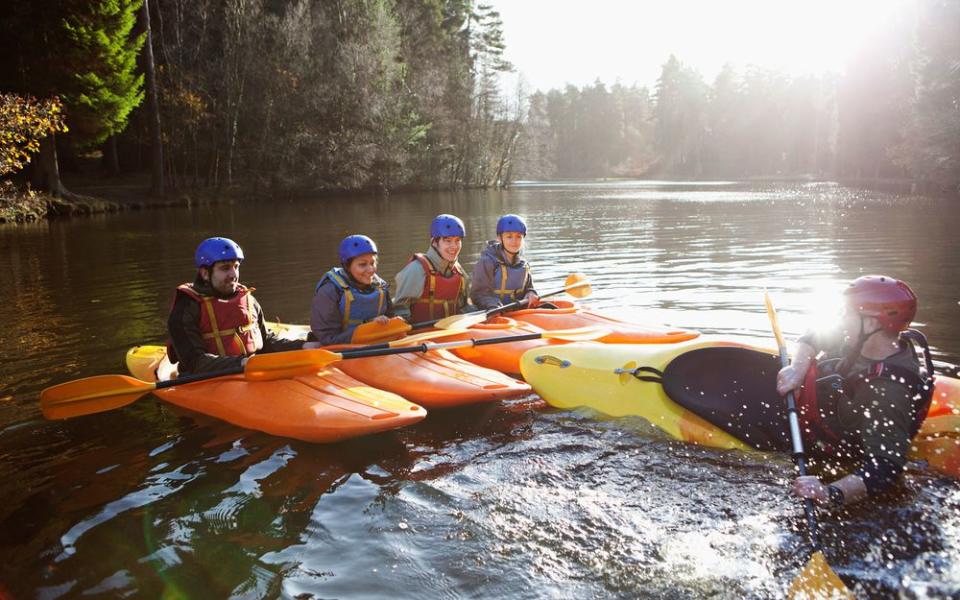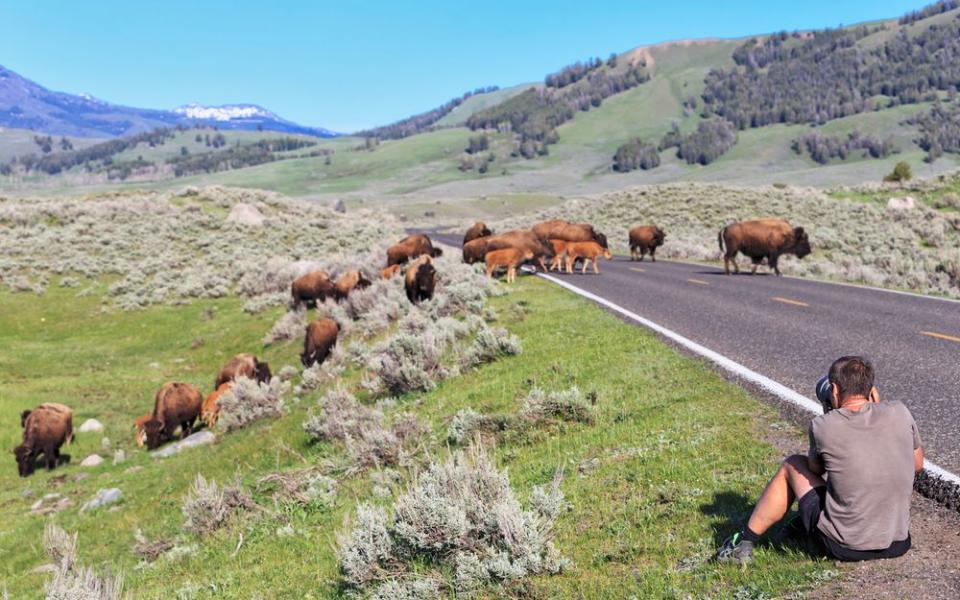The Best Jobs for People Who Love Spending Time Outdoors
If you often find yourself dreaming about having a career that lets you spend time in nature, you're in luck.
Whatever it is that inspires your love for the great outdoors, there are many jobs out there that will pay you to interact with wildlife and like-minded travelers.
While some of these positions require a specific degree, others offer on-the-job training. Some will even provide you with free housing in exchange for your work.
We’ve rounded up a range of careers that will get you out of the office and on your feet. Qualification requirements and median annual wage (as of May 2017) numbers are based on the latest information from the U.S. Bureau of Labor Statistics.
Anthropologist or Archeologist:
Anthropologists and archeologists spend their time studying people, from their origin and development to their behavior. The positions involve examining cultures and physical characteristics of people from around the globe, and sourcing archeological remains, many of which often end up in museums.
In these positions, you could be hired through research organizations, analyzing samples and conducting fieldwork that may at times require traveling for extensive periods. Requirements often include a master’s degree or PhD, though those with bachelor’s degrees can sometimes start as assistants or in fieldwork. Median annual wage: $62,280
Commercial Diver:

Love the water? Becoming a commercial diver means you’ll be spending the majority of your time there, as you’ll be using scuba equipment to inspect the ocean, remove and install structures, conduct underwater experiments, or photographer underwater species and structures.
According to the Diver’s Institute of Technology, you’ll need a high school diploma or an equivalent level of education, and will need to be at least 18 years of age and pass a diving physical to qualify. Median annual wage: $55,270
Landscape Architect:
As a landscape architect, you’ll spend your days developing green spaces for both private and public sectors. You could find yourself working on projects that range from design spaces in parks and highways to working on government buildings.
Most states require that you have a license, though the specific licensing requirements vary from state to state. Typically, most will require applicants to have a degree in landscape architecture from an accredited school as well as internship experience. You’ll also be required to take the Landscape Architect Registration Examination. Median annual wage: $65,760
Tour Guide:

As a guide, you’ll get to help travelers plan, organize, and take tours across destinations, often escorting them to art galleries, historic monuments, and popular nature sites. Most tour guides obtain a high school diploma or equivalent form of education and are trained on the job. Some locations require tour guides to obtain a license. Median annual wage: $29,180
Forest or Conservation Worker:
If you love spending your time surrounded by trees, these positions are for you. Forest and conservation workers will often monitor the state of forests, taking inventory of trees, checking their conditions, and planting and transporting seedlings.
They’re often hired through state and local governments or privately owned forest lands and nurseries, and most careers requiring a high school diploma. Median annual wage: $27,650
Surveyor:
Surveyors are responsible for establishing the official boundaries for land, airspace, and water sources, typically working with homeowners and construction firms. Most positions require a bachelor’s degree, and a specialized license is required for certain tasks such as certifying legal documents. Median annual wage: $61,140
Agriculture Worker:

In this role you will help maintain farms, crops, and care for animals. You’ll receive training on the job, but animal breeders will require a high school diploma. If you’re looking to try your hand at farming, consider checking out the Worldwide Opportunities on Organic Farms (WOOF), where you can stay with organic farmers in exchange for helping out on their property. Median annual wage: $23,730
Environmental Scientist:
Environmental scientists are responsible for collecting data to advise policymakers and industries on how to reduce waste, while monitoring environmental conditions and helping clean up polluted areas.
Time on the job is often split between being in the field and conducting work in offices and labs. At least a bachelor’s degree in a natural science or science-related field is required for most entry-level positions. Median annual wage: $69,400
Geoscientist:
Geoscientists specialize in the Earth’s composition and behaviors. You may find yourself studying natural resources like ground water, petroleum, and metals, conserving soils, maintaining the quality of water supplies, and developing land-use plans.
You’ll split your time working in labs and offices and conducting fieldwork, which can often be in remote locations. Most entry-level positions require a bachelor’s degree, though some require a master’s. Median annual wage: $89,850
Recreational Worker:

A variety of jobs fall under this category, whether you’re looking to work with summer camps and fitness centers or parks and forests. Workers in these positions typically need a high school diploma or equivalent level of education to apply and will receive training on the job, though requirements will vary based on the specific position. Median annual wage: $24,540
Wildlife Photographer:

If you’ve got an eye for shooting images and a love of animals, this competitive field could be for you. You’ll need to have camera skills and learn how to edit pictures, since most positions won’t require post-secondary education, though some will require a college degree. Median annual wage: $32,490
Zoologists and Wildlife Biologists:
Animal lovers can spend their days studying the physiology and behavior of various creatures and monitoring how they interact with their habitats. While you may spend some of your time in offices and labs, you will also find yourself collecting data in the field and studying animals in their natural habitats.
You’ll need a bachelor’s degree for entry-level positions, while a master’s degree is often required for investigative or scientific work, and a PhD is required to work independently or on a university research project. Median annual wage: $62,290
Recreational Protective Service Workers:
If you’ve ever though about working as a lifeguard or on ski patrol, this is the category you’ll find yourself in. These workers monitor recreational areas like pools, beaches, and slopes to keep everyone safe. Positions typically require a high school diploma/GED or certification after high school. Median annual wage: $23,570
Fish and Game Wardens:
In these positions, you’ll be commissioned as law enforcement by state and federal agencies to help patrol areas and prevent fish and game law violations like poaching. You’ll also investigate damage caused to crops or property by wildlife.
Jobs are often assigned through each state’s fish, park, and wildlife department or on a federal level through the U.S. Fish and Wildlife Service. Positions typically require a valid driver’s license and a bachelor’s degree, though some will accept experience instead. Median annual wage: $58,570

